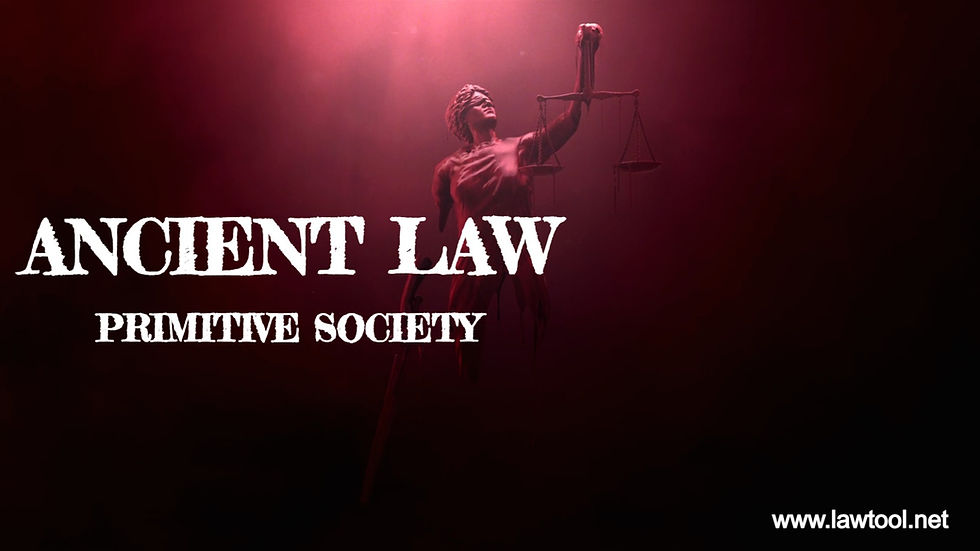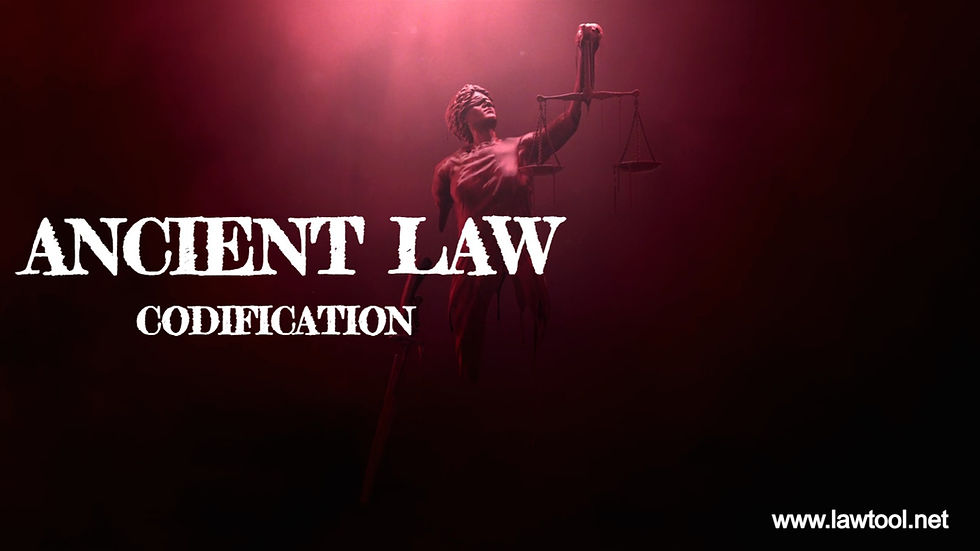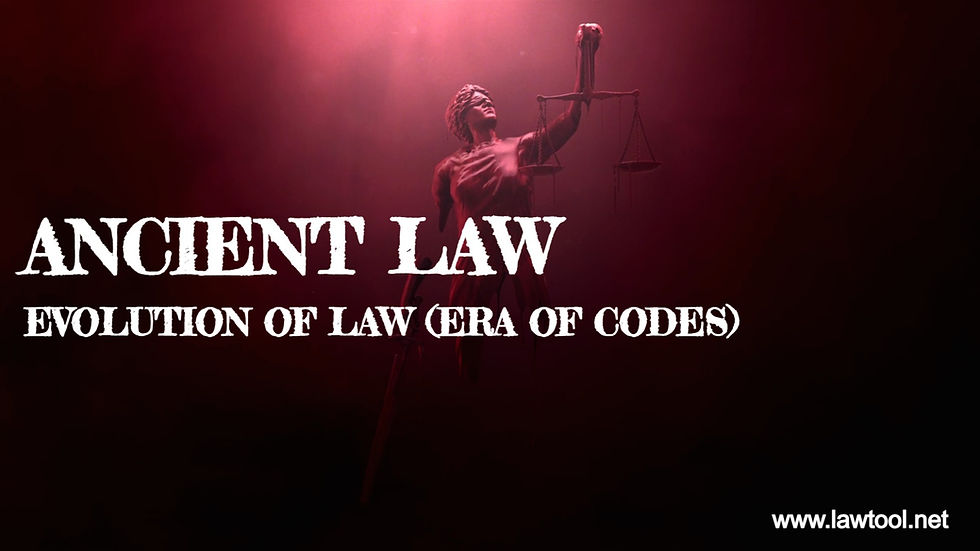PRIMITIVE SOCIETY
- www.lawtool.net

- Jun 23, 2020
- 2 min read
Updated: Jul 30, 2021
The movement of all progressive societies has hitherto been a movement from status to contract'..Henry Maine .
Henry Maine in Chapter V, 'Primitive Society and Ancient Law', makes a deep and penetrating enquiry into the early primitive societies and analyses the then existing system, and compares them with the later systems. With this analysis, he comes to the conclusion that 'the movement of all progressive societies has hitherto been a movement from status to contract'.
The oldest prevalent system was the particular family. Here the eldest male parent called partia protestas was absolutely supreme. He had extraordinary powers over his children women and the slaves.
He could kill them if he decided to do so, the children had no rights what-so-ever. They had no right to property also. The son obeyed the father and it was moral obligation of the father to look after the son. The son was to gain superior strength and wisdom under his father's guidance. This Absolute power of the father saw a change.
Eg. Where a son was appointed as commander in the army and the father continued as an ordinary solider, the father was supreme in the family but the son was supreme in the battle field. The son had the power to punish his father !
Where a son was appointed as Magistrate and the father a clerk under him, this naturally brought a change. The father's powers to sell the sons, to physically punish etc. slowly lost their foothold.The first stage came when sons acquired properties as commander or as Magistrate etc. The sons could have for themselves the properties acquired by them. Emperor Constantine took away the absolute powers of the father over the property of children. Justinian also introduced changes. The sons were allowed to have their own properties.
Position of Woman and Slaves :
The position of the families was that of a tutelage (under control of others). Restrictions had been imposed on the property.Further in respect of the. selling of the slaves the position was
pathetic, to say the least. The slave could be sold or killed or ill-treated or controlled by the partia potestas . Later, under manumission the slaves were freed from their bondage. Such a free slave could be appointed as an heir by the partia potestas.
The succeeding generations saw innumerable changes. There was a gradual dissolution of the family dependency and individuals started living on their own. In many cases the individual lived separately and his relationship with others was one of contracts. The social order changed to an order in which the relationship between individuals and individuals became governed by contracts. Slaves became free and the contractual relationship of master and servant came into existence. A move from status to contract. Hence Henry Maine is right in his conclusion that the movement of all progressive societies has been a movement from status to contract.





Comentarios